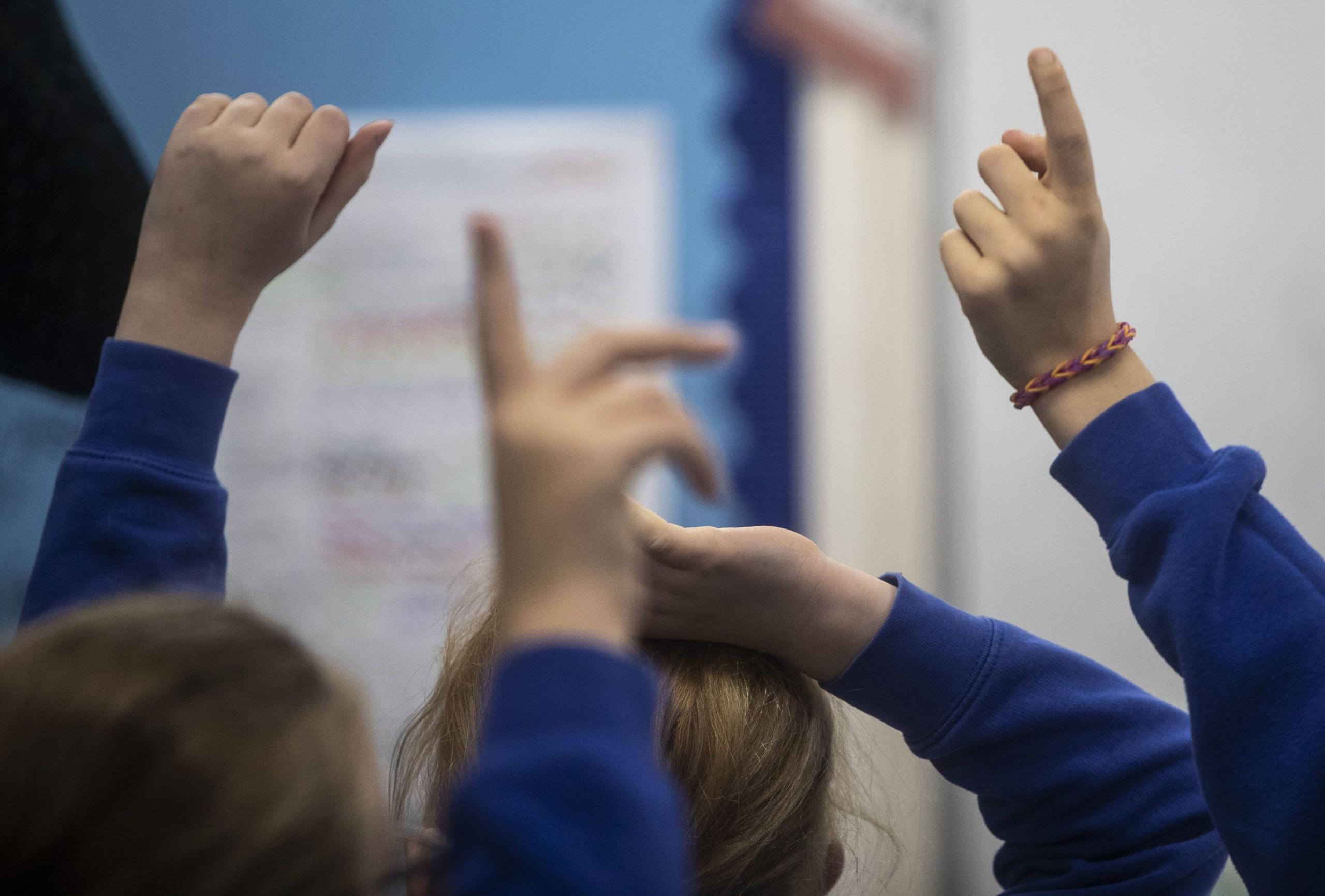Council in bid to rescue £49m Send funding deal

Paul Jefferies with his wife Fay and daughter Eirlys, who recently moved to a special school
- Published
The father of an autistic girl has welcomed plans by a council to focus on early support for children with special educational needs and disabilities (Send).
Paul Jefferies, from Huntingdon, said there was a "reasonable chance" his daughter Eirlys, 10, would still be in mainstream school if she had got help sooner.
Cambridgeshire County Council has proposed a new strategy towards Send children in its care, in a bid to get £49m of Department for Education (DfE) funding that is at risk.
A council spokesperson said: "By working to ensure that children are supported as soon as possible, we will deliver better outcomes and prevent needs escalating further, whilst making better use of public funds."
'Driving costs down'
The authority has put its new strategy to the DfE in the hope of rescuing the funding deal.
The money was agreed on the condition the council made a contribution of £9m over five years, but a report said there was "limited assurance" it would be able to do this.
The council said its new strategy of "inclusion for all" focused on identifying and meeting children's needs earlier, so they could thrive in mainstream schools.
A report, external being presented to councillors on Tuesday said: "In this way, children and young people can develop their life skills to support independence whilst also driving costs down."
A special school place in Cambridgeshire costs £21,824 on average, but a placement in a mainstream school costs the council £14,025 a year.
Mr Jefferies' daughter Eirlys moved to a special school in June after being unhappy with her education at a mainstream primary school.
"Over time, you could see she was getting more and more anxious about going to school," said Mr Jefferies.
He said Eirlys' needs made it difficult for her to feel in control, leading to outbursts and exclusions.
"Barely a day would go by without a phone call saying 'this happened at school today'," he said.

Paul Jefferies said things went downhill for his daughter when she moved up a year in school
Mr Jefferies said Eirlys enjoyed a good year at her school with a teaching assistant (TA) who "totally understood" her.
"She had a brilliant year and it proves a mainstream school could do it."
But things went downhill when she moved up a year.
"Eirlys was simply not coping in class and had had enough."
He took his daughter out of school in February, prompting an emergency review of her Education, Health and Care Plan (EHCP).
"If we'd had the right strategies put in place, with Eirlys getting the right support, there's a reasonable chance she would have been able to remain in her mainstream school," said Mr Jefferies.
Councils are under greater pressure from increasing requests for EHCPs, which are put in place to provide children with additional support.
Peterborough City Council said in a recent report, external that demand for EHCPs had increased "significantly", with 2,500 children in the city on a plan.
Cambridgeshire County Council said it had about 8,000 EHCPs in place, and that demand had increased by nearly 50% in five years.
A spokesperson from the authority said: "We are doing all we can locally to manage the increased pressures on funding as result of this rising demand.
"We have recently submitted a revised Safety Valve proposal to the Department for Education to help the council to manage these dual pressures of rising demand and costs."
Get in touch
Do you have a story suggestion for Cambridgeshire?
Follow Cambridgeshire news on BBC Sounds, Facebook, external, Instagram, external and X, external.
Related topics
- Published14 August 2024

- Published29 July 2024
